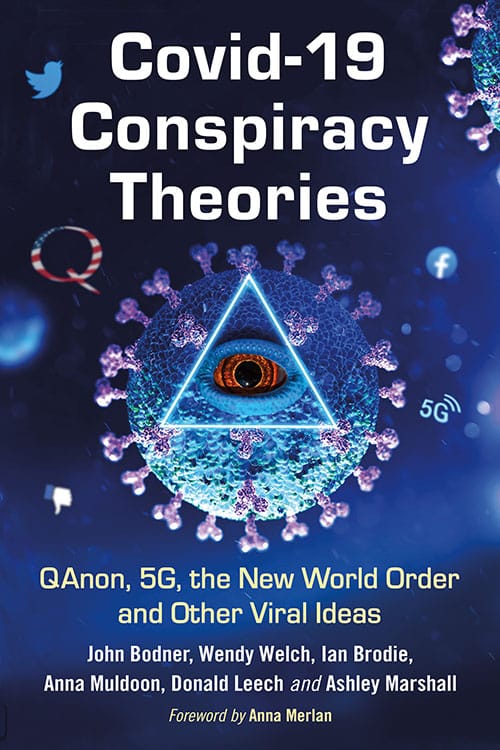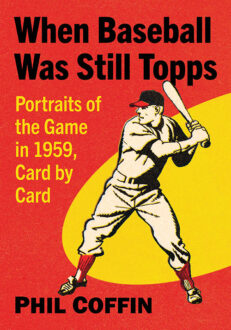Covid-19 Conspiracy Theories
QAnon, 5G, the New World Order and Other Viral Ideas
$29.95
In stock
About the Book
As the novel coronavirus (Covid-19) spread around the world, so did theories, stories, and conspiracy beliefs about it. These theories infected communities from the halls of Congress to Facebook groups, spreading quickly in newspapers, on various social media and between friends. They spurred debate about the origins, treatment options and responses to the virus, creating distrust towards public health workers and suspicion of vaccines. This book examines the most popular Covid-19 theories, connecting current conspiracy beliefs to long-standing fears and urban legends. By examining the vehicles and mechanisms of Covid-19 conspiracy, readers can better understand how theories spread and how to respond to misinformation.
Instructors considering this book for use in a course may request an examination copy here.
About the Author(s)
Bibliographic Details
John Bodner, Wendy Welch, Ian Brodie, Anna Muldoon, Donald Leech and Ashley Marshall
Foreword by Anna Merlan
Format: softcover (6 x 9)
Pages: 263
Bibliographic Info: 30 photos, notes, bibliography, index
Copyright Date: 2021
pISBN: 978-1-4766-8467-3
eISBN: 978-1-4766-4321-2
Imprint: McFarland
Table of Contents
Foreword by Anna Merlan 1
Introduction 5
One. Conspiracy Theory 101: A Primer 9
Two. The “Wuhan Virus”: A Cautionary Tale of Origin Conspiracy Theories 29
Three. Recycling White Power Rumors After the Black Death 59
Four. “But My Cousin Said”: Covid-19 and Black Communities 73
Five. Harmful Additives: Pre–and Pandemic Anti-Vaccination Thinking 95
Six. Apocalypse Now, or Later? End Times and the New World Order 117
Seven. QAnon, Pizzagate and the Pandemic 143
Eight. Waves of the Future or Waves of Oppression? 5G Fears 164
Nine. Drawing Lines in Shifting Sand: The Covid-19 Cartoons of Ben Garrison 180
Ten. When All Is Said—or Done: Examining Ourselves, Talking to Others 204
Acknowledgments 218
Author Biographies 219
Chapter Notes 221
References Cited 229
Index 253
Book Reviews & Awards
• “An exceptionally timely book, the authors combine intellectual forces to explore the complexities of the conspiracy theories that gained enormous traction during the COVID-19 pandemic. The team marshals the perspectives of these diverse fields to provide historical and folkloristic anchoring for the narratives, memes, and other expressive forms that ‘went viral’ across various platforms during the first months of the pandemic. The folkloristic perspective of Bodner and Brodie ensures that the stories themselves are not glossed over, but rather form the backbone of the ensuing investigations of this dynamic narrative ecosystem. … The various examples of conspiracy theories…including the ‘virus-as-hoax,’ are among the most engaging of the entire volume. … The book is written in a remarkably accessible language and targeted primarily at university-level students. It will also be of interest to researchers and journalists looking for a substantive and well-researched introduction to COVID-19 conspiracy theories. The authors should be commended for documenting and analyzing an ongoing crisis … Corralling scholars from so many disciplines is difficult under the best of circumstances, but here, the efforts are clearly worth the end product, as the authors have provided an important view of the storytelling ecosystem of the early pandemic period, while modeling the best of interdisciplinary research.”—Journal of American Folklore
• “A richly intertwined tapestry of expertise and insights into the nature and seriousness of conspiracy theories, and how they are coalescing and evolving around the current pandemic and attempts to combat it.”—Edge of Innovation
• “Just finished reading this standout book. While I was baking too much bread and pondering whether I needed to quarantine my mail, Bodner et al. were hanging out in some dark Internet places and doing some great analysis of CTs. Kudos to them! I hope their press submits the book to all the prize committees. This is serious award material.”—Jeannie Thomas, Utah State University
• “A lovely book… As I read it, I kept thinking of it, as I think you must have as you wrote it, as a textbook for university students, and I hope it will have great success in that. I like the intellectual backgrounding that is given for so many of the topics raised, and the scholarship that attends all that backgrounding. Professors will find it useful and students will find it helpful and interesting…. One of my marvels [of the] book was that it was so well finished, so well organized, and so well filled out. Congratulations on a great book. I loved it.”—Dr. Philip Hiscock (retired), Memorial University of Newfoundland
• “Essential reading…in-depth, challenging, and timely…The book is written in a conscientious and empathetic effort to contribute to a better understanding of belief. It is admirable how the authors also move beyond academic inquiry into applied folklore…their important new volume gives readers a wealth of resources for dealing with challenges that emerge in discourse with others during the pandemic.”—Arkansas Review





